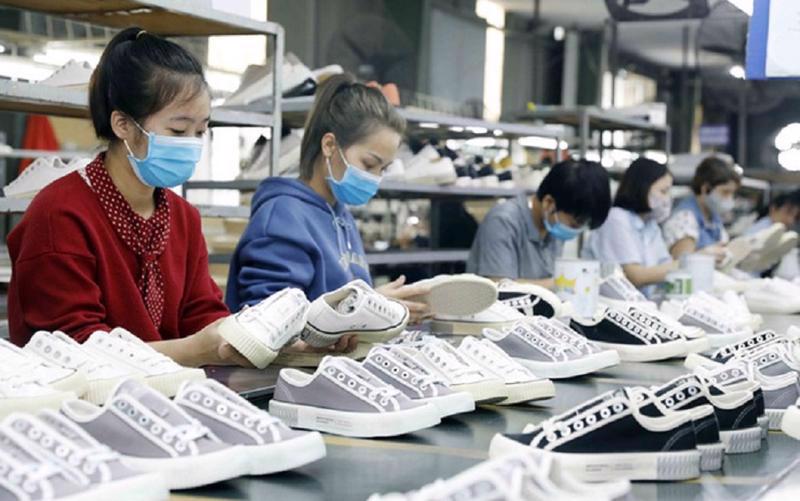The volume of Vietnamese goods exported to the EU granted a certificate of origin (C/O) from Vietnam, under EUR. 1 form, as required by the EU-Vietnam Free Trade Agreement (EUVFTA), now accounts for 20 per cent of total exports to the bloc, according to the Ministry of Industry and Trade (MoIT).
Ms. Trinh Thi Thu Hien from MoIT’s Department of Export and Import said the figure demonstrates a very positive outlook.
“The figure of 20 per cent shows that the EUVFTA has initially proven to be a substantive and highly-anticipated agreement,” she said.
Exports granted such a C/O mostly enter markets with seaports or that are key distribution centers in the EU, such as Belgium, Germany, the Netherlands, and France. Commodities with high turnover granted a C/O under the agreement include footwear and seafood.
In the two years since the agreement came into effect, exports with such a C/O to Germany and Belgium have totaled $3.2 billion and $3.5 billion, respectively.
Under MoIT’s Circular No. 11/2022/TT-BTC implementing the rules of origin in the EUVFTA, Vietnamese goods exported to the market are granted a C/O from Vietnam under the EUR. 1 form to enjoy preferential tariffs.
Though the volume of goods taking advantage of this has increased markedly, there remains plenty of space for businesses to raise the volume of goods of Vietnamese origin to the EU.
To that end, Ms. Hien said, the MoIT has recommended the formation of legal documents on the origin of goods to create a legal corridor and specific, transparent regulations on the issue, including sanctions and penalties.
The ministry is working with the General Department of Vietnam Customs and associations to provide appropriate training and guidelines to help businesses satisfy the EU’s strict regulations.
It is also working with customs authorities in importing countries to timely support businesses when commodities are in need of origin verification. When commodities fail to meet “the origin of goods” regulations, the ministry will work with the EU to find proper solutions to combat origin fraud.
Vice Chairwoman and General Secretary of the Vietnam Leather, Footwear and Handbags Association (Lefaso), Phan Thi Thanh Xuan, said the EUVFTA has made considerable contributions to Vietnam’s exports of leather and footwear to the EU.
Covid-19 has led to reduced exports over the past two years, but thanks to the EUVFTA, exports of leather and footwear to the EU reported growth in 2021.
Apart from rules of origin, Vietnamese products also benefit from the EU’s Generalized System of Preferences (GSP) regulations, designed for underdeveloped and developing countries.
Enterprises can also provide a self-declaration of origin on consignments with a total value not exceeding €6,000 ($6,325).









 Google translate
Google translate